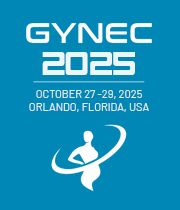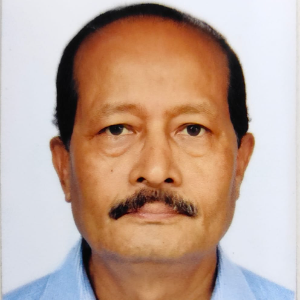Title : Inositol in treating sub fertile women and adolescents with PCOS
Abstract:
Polycystic ovarian disease is one of the most common endocrine disorders affecting women of reproductive age and adolescents. It doesn’t spare even perimenopausal women. PCOS is the most common cause of anovulatory infertility in women. The global prevalence of PCOS varies from 5 to 18%. Indians have amongst the highest prevalence rates in the world- 41% amongst reproductive age group women. PCOS is diagnosed by Hyperandrogenism, oligo & or anovulation, polycystic ovaries and ovarian dysfunction by different criteria like NIH 1990, Rotterdam 2003 & AE-PCOS Society 2006. Different complications of PCOS are- Infertility, obstetrical, cardiovascular, metabolic,oncologic, psychiatric and many more. There are many Phenotypes of PCOS out of which Phenotype A, B, C, D are important. PCOD increases the risk of GDM by more than 200%.Insulin resistance is present in 65-80% of PCOD cases. PCOD increases the risk of T2DM by 1600% & 60% of GDM pts develop T2DM.In the evolution of PCOS summary – We see that environmental factors, genetic factors, inositol deficiency, deranged insulin signaling which eventually lead to Pituitary dysfunction enhanced ovarian androgen production and thus, development of insulin resistance.
For decades, we are treating the symptoms of PCOS only and not the cause with Metformin/Pioglitazone, Spironolactone, Cypropterone acetate Flutamide,Finasteride, Oral Contraceptives, Clomiphene Citrate, Letrozole, Anastrozole etc. No satisfactory treatment resume was discovered till the inositol was introduced for the treatment of PCOS. Inositol belongs to the vitamin B complex. Epimerization of the six hydroxyl groups of inositol leads to the formation of up to nine stereoisomers, including myo-inositol (MYO) and Dichiroinositol (DCI) both Stereoisomers were used, as insulin sensitizer drugs in the treatment of PCOS treatments. Human adults consume approximately 1g of inositol (mainly MYO) per day in different biochemical forms. Circulating free MYO is taken up by most tissues by a membrane associated sodium dependent inositol co-transporter inositol uptake is inhibited by glucose. In particular, it was shown that MYO had 10 times more affinity for the transporter compared to DCI.
In our study method, total no. of 407 women were included. From 10 to 19 years=202 no., 20 to 30 years = 105 no., 31 to 45 years = 100 no. Study design was randomized control vs folic acid. Duration of study was 6 months. Inclusion criteria was 10 to 45 years of women with PCOS defined by Rotterdam Criteria and exclusion criteria were other medical conditions causing ovulatory disorders: hyperinsulinemia, hyperprolactinemia, hypothyroidism, or androgen excess, such as adrenal hyperplasia or Cushing syndrome. Out of 202 women,16% conceived following treatment in the age group of 20 to 45 years. In the age group of 10 to 19 years, a total of 205 women showed improvement in skin condition, regulations of menstrual cycle, Improvement in BMI, RBS and fasting Insulin. There were no such side effects except experiencing flatulence and nausea by 4 no. and 3 no. of women respectively during the study period.
Conclusion: By analyzing different studies focus on MYO supplementation to improve several of the hormonal disturbances of PCOS, we provide a level evidence of MYO effectiveness. MYO mechanism of action appears to be mainly bases on improving insulin sensitivity of target tissues, resulting in a positive effect on the reproductive axis (MYO restores ovulation and improves oocyte quality) and hormonal functions (MYO reduces clinical and bio chemical hyperandrogenism and dyslipidemia.



